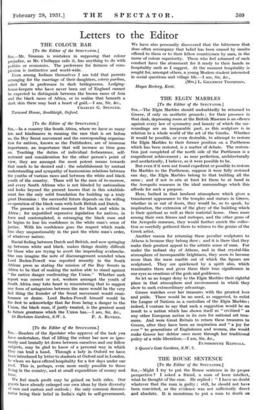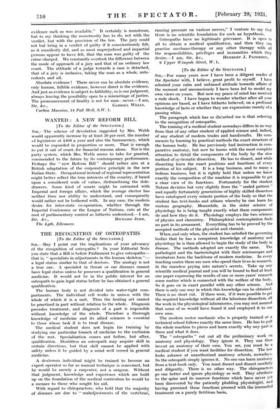THE ROUSE SENTENCE
[To the Editor of the SPECTATOR.] SIR,—Might I try to put the Rouse sentence in its proper perspective ? I asked a friend, a man of keen intellect, what he thought of the case. He replied : "I have no doubt whatever that the man is guilty ; still, he should not have been convicted, as the evidence was not sufficiently direct and absolute. It is monstrous to put a man to death on
evidence such as was available." It certainly is monstrous, but to my thinking the monstrosity has to do, not with the verdict, but with the provision of the law. The jury could not but bring in a verdict of guilty if it conscientiously felt, as it manifestly did, and as most unprejudiced and impartial rersons appear to have felt, that the man was guilty of the crime charged. We constantly overlook the difference between the mode of approach of a jury and that of an ordinary law court. The attitude of a judge towards a case is detached, that of a jury is inclusive, taking the man as a whole, ante- cedents, and all.
Absolute evidence ! There never can be absolute evidence, only human, fallible evidence, however direct is the evidence. And just as evidence is subject to fallibility, so is our judgment, always leaving the possibility open to a miscarriage of justice. The pronouncement of finality is not for mannever.—I am,












































 Previous page
Previous page